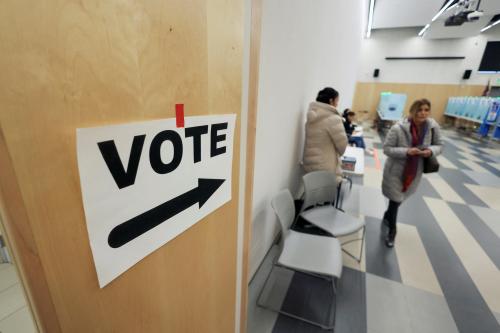The tragedy of the Iowa Democratic Caucus is that due (in part) to efforts to preserve its integrity, the system failed to report the vote in a timely manner—which may mark the end of caucus/convention systems and the end of Iowa’s coveted first-in-the-nation contest.
The changes that were implemented Monday night were intended to be fairly straightforward, based on two questionable prior races. Following two tight and controversial Iowa races, a Republican race in 2012 and a Democratic race in 2016, Iowans have been forced to confront a system that was built for a different age and lacked both transparency and the ability to ensure its integrity.[1]
By 2017, a crescendo of opposition to the caucus system was growing in both political parties. The Democratic National Committee imposed some new rules for 2020. At the insistence of supporters of Senator Bernie Sanders, and with little opposition from others, the Iowa Democratic Party agreed to publish not just the State Delegate Equivalents (the number of delegates each candidate won to the state convention) but the underlying votes that allocated those equivalents. Thus, the press expected to hear not one set of numbers on election night but three: the number of people who initially turned out for each candidate, the number of people who were for each candidate after those whose candidate didn’t reach 15% were allowed to join another candidate, and the number of delegates each presidential candidate would have at the state convention.
Complicated as it is, this new reporting allowed every candidate to see the first vote, the second vote and then to check that the math allocating delegates was done correctly. In other words, in the interests of transparency the vote reporting became much more complicated.
The second change was to require what were, in essence, paper ballots for each vote. These ballots are to be kept by the state party and will form the basis for a recount. That was an important step because, in prior years, it was virtually impossible to recount a caucus after everyone had gone home—record keeping was sloppy if it happened at all.
And so to last night. As the caucuses ended and the precinct chairs began to send in the results of all three ballots, the app designed for this reporting crashed. To date, there is no evidence that it was hacked—just the usual and predictable problems of overloading a new and not properly tested system. Precinct chairs had trouble getting through to the backup hotline, which was also overwhelmed, and some resorted to putting their results on Facebook or driving to headquarters in hopes that their results could get counted. As if that wasn’t bad enough, an error was discovered in the software that translated final votes to State Delegate Equivalents. The formulas for this calculation are clearly spelled out in the Iowa delegate selection plan but apparently were not written correctly in the app’s software.
Ironically, in 2019 the Democratic National Committee rejected an earlier plan from Iowa to use cell phones to vote for those who were unable to attend a caucus out of concern that the system would be too easy to hack.
The great tragedy of Iowa is that when the results are in, they will probably be the most accurate results ever reported out of the Iowa caucuses. There will be a paper trail for both votes and a comprehensive accounting of all three votes in all precincts. And yet the most accurate Iowa caucuses may be the last.
Elaine C. Kamarck is a Senior Fellow at the Brookings Institution and author of Primary Politics: Everything You Need to Know about How America Nominates Its Presidential Candidates. She is a member of the Democratic National Committee and a member of the Rules Committee.
[1] In 2012, former Governor Mitt Romney won the Iowa Republican caucuses, at least on caucus night. But two weeks later a recount showed that in fact, Senator Rick Santorum had actually won the caucuses. Nonetheless, it was Romney who got the boost in momentum that comes from winning in Iowa. In 2016, Senators Hillary Clinton and Bernie Sanders were locked in a tight race. The Iowa party did not report results until 2:30 in the morning. Hillary Clinton claimed victory based on a 0.3 percent lead in the number of state convention delegates elected.








Commentary
The tragedy of the Iowa Caucus
February 4, 2020